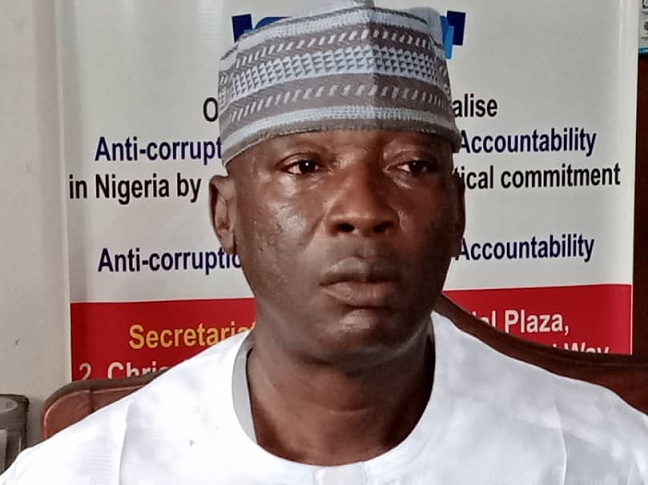They said the old General was gone. Just like that. One final salute to the realm of shadows. One last flight from London, this time not for treatment, not for rest, not for retreat, but for eternity. Muhammadu Buhari, former Nigerian president, faded yesterday into the waiting hands of history, leaving a nation stunned, sentimental, and divided, as he always had it.
Death, like power, does not negotiate. But even death will now understand that it has not just taken a man; it has interrupted a myth.
Buhari was never just a name. He was an emotion. A parable. A sermon in a dusty turban. He was the General whose silence thundered louder than a thousand press conferences. He didn’t need to shout; the North shouted for him.
They said he didn’t have a WAEC certificate. The North said he had character. They said he was too old. The North said he was too trusted to be replaced. They said he was clueless. The North said he was mai gaskiya, the honest one, and in that phrase lay the immunity that no tribunal could overturn.
To understand Buhari is to understand the stubborn hope of a region betrayed too many times. The man was not perfect. Far from it. But he was predictable, and in Nigeria, that alone is sainthood.
Who else in modern Nigerian politics could lose an election and still command human pilgrimage from Kano to Lagos on foot? Who else could rule with such frustrating aloofness, yet still be greeted in Daura with chants as if Mecca had returned to Katsina?
He was the last of the northern giants who didn’t need Twitter spaces or Instagram reels. His power came from Friday mosques, radio sets crackling with Hausa bulletins, and the loyalty of men who believed, without question, that his heart beat for them.
To borrow from Chinua Achebe: Buhari didn’t need to speak much, his people heard him anyway.
You may insult him in Queen’s English, accuse him in legislative grammar, ridicule him in Lagos cocktail parlance, but once he returns home to the North, the wind of criticism turns to silence.
Not since Ahmadu Bello has a man moved the northern political soul with such messianic presence. Unlike the flamboyant Atiku, the technocratic elusiveness of El-Rufai, or the madrasa-acquired orthodoxy of Ibrahim Shekarau, Buhari was not loved because he was perfect. He was loved because he embodied an ideal, the mai gaskiya, the honest one, the austere general who would rather clamp down on rice smugglers than hug a campaign donor.
Even as his presidency sagged under the weight of insecurity, economic woes, and policy inertia, his northern base clung to him, sometimes desperately, often illogically, but always loyally. In a region ravaged by poverty and disillusionment, Buhari remained the last emblem of righteous indignation.
Now, in the aftermath of his death, the question swells like harmattan dust over the savannah: will the North ever produce another Muhammadu Buhari?
Certainly, the demographic is there. The geography is vast. The turbans are many. But political loyalty, real, irrational, and generational, is no longer transferable like bride price goats.
Take Rabiu Musa Kwankwaso for example. He struts like a red-capped peacock around the Kano Emirate, but even that fiefdom is shrinking with every passing election. His famed Kwankwasiyya movement is a fine blend of populist posturing and policy ambiguity, heavy on style, short on soul. He may command the Emir’s court but cannot rattle the caliph’s gates.
Then there is Atiku Abubakar, Nigeria’s veteran presidential aspirant. Atiku is the man who has tried everything but celibacy. He has friends in every party but loyalty in none. He understands politics, but politics does not always understand him. His empire is digital; his following, transactional. He is the type of leader whose supporters wear agbada with calculators in the pocket.
El-Rufai? He is smart. Too smart. And therein lies the problem. Nigerians love clever leaders, but only if they are poor, soft-spoken, and preferably semi-literate. El-Rufai’s tongue slices too quickly, and his reformist fire burns the hands of consensus. He’s too Kaduna for Katsina, too Abuja for Birnin Kebbi.
Sule Lamido tried once to step into Buhari’s sandals, but the shoes pinched his ego. Aminu Tambuwal comes close in grooming but lacks the mass appeal. Sanusi Lamido Sanusi? Ah! He’s the only one who looks like the crown, talks like the throne, but was dethroned in real time. And that is Nigeria for you, the country where intellect is an affliction and brilliance is best left in exile.
Let’s not forget Bola Ahmed Tinubu, now crowned President, but from Lagos not Lafia. His northern political debts are transactional; they were calculated on abacus boards in smoke-filled rooms. He has northern allies, not northern love. He built bridges, yes, but not like Buhari, who was the bridge.
So again, I ask, will the North ever produce another Buhari?
Not now. Perhaps not ever.
The North has lost more than a man. It has lost a mirror. A myth. A memory of discipline, of rigidity, of that dry, military moralism that defined an era.
Yes, Buhari’s presidency was flawed. His economic policies tested patience. His silence during crises sometimes screamed complicity. But love is not always rational. And the North loved him not because he was effective, but because he was theirs.
Now, the lion has returned to the earth. And the question remains like a prayer unanswered: who can inherit his shoes when the feet were made by history, not biology?
As Buhari is laid to rest, somewhere between the fading light of Daura and the echo of Allahu Akbar from the mosque, his legend is only just beginning.
May Allah forgive his shortcomings, reward his intentions, and grant him aljannah firdaus.
The North may rise again. It may produce leaders again. But Sai Baba? There will never be another.
– Adeyemi Babarinde Sunday writes from Kogi state.




